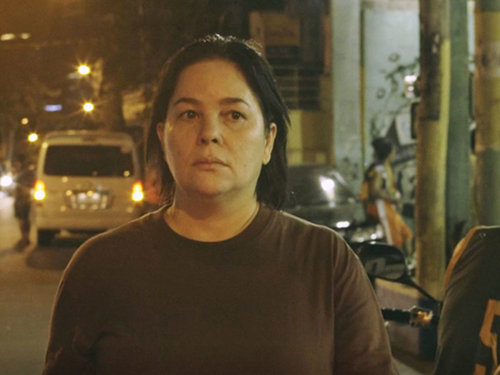
“The actors were never given a copy of the script. They were only directed based on how I commuted the script. Dialogues were delivered very naturally as they depended on the actors’ personal instincts throughout the film. In fact, sequences were filmed in the same order as the story, so that the actors would feel the plight of their character as the shooting progressed. The feeling of uncertainty was to be materialized on screen, so the editing always subscribed to the main character’s point of view as we followed her accounts of what transpired on that evening.”
Brillante Mendoza1
“I don’t tell my actors about my camera placement, my angles, or whatever I shoot. I have multiple cameras and I let them go. I treat every situation like it’s a play or a real-life situation. Everything is lit already and everything is set up. I do very minimal set-ups and I use very few lights. I don’t use tripods. It’s very unconventional and realistic filming. It’s more like doing a documentary.
We used the then newly released A7s mirrorless camera by Sony. Our director of photography wanted to experiment with the camera to try to test the limits of its advertised low-light capabilities and cinema log profile. It worked very well for the film, especially in the night scenes in Ma’Rosa’s neighborhood, which were lit mostly by existing tungsten streetlights. It kept the look of the film naturally low-key and gritty, which sticks to the authenticity of the environment.”
Brillante Mendoza2
“Mendoza has been an avid supporter of President Duterte, a believer in the chief executive’s so-called ‘War on Drugs’; paradoxically the film (released about the same time as he was elected) has gained relevance in the wake of this protracted struggle of some fourteen months – some fifteen if you count from the date of elections (the killings started even before he took office). Low-level drug dealers possess more humanity in this film than the present administration has been willing to grant them, and the cruel corrupt system of ‘palit-ulo’ (‘head swapping,’ the film’s original title) – of holding a suspect his wife his relative hostage till ransom is paid (or someone higher up is caught) – so rampant in the previous administration seems relatively benign compared to the ongoing campaign of extrajudicial killings (which in recent weeks has escalated to the stabbing of teenagers). In effect Mendoza’s earlier work intentionally or not seems like a subtly rendered yet eloquent rebuke against the regime of murder and brutality we are seeing today.”
Noel Vera3
- 1Brillante Mendoza, ‘Director's Statement,’ Press Kit Ma' Rosa, 2016.
- 2Brillante Mendoza and Carlos Aguilar, ‘Brillante Mendoza’s Ma’ Rosa Tells a Real-Life Story, Driven By the Energy of the Philippines,’ MovieMaker Magazine, 1 December, 2016.
- 3Noel Vera, ‘Swap Heads,’ Critic After Dark: A Review of Philippine Cinema, 7 December, 2017.
Mendoza has filmed two government advertisements promoting the president’s anti-drug campaign and directed Duterte’s 2016 and 2017 State of the Nation Address, including some controversial extreme close-up’s. Mendoza also made a Netflix series set against the backdrop of Duterte’s drug war, called Amo, which premiered in April 2018.

